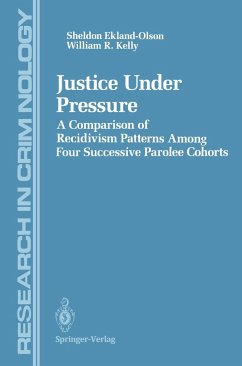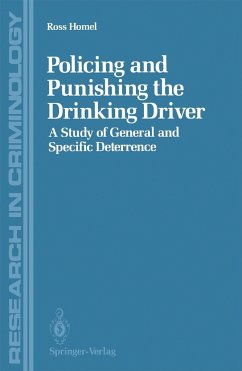
Developments in Crime and Crime Control Research
German Studies on Victims, Offenders, and the Public
Herausgegeben: Sessar, Klaus; Kerner, Hans-Jürgen

PAYBACK Punkte
20 °P sammeln!
"One of the central features of modern German criminology in revealing the 'true nature of crime' follows the tradition of enlightment" instead of accommodating the approach of the criminal justice system. This contention is made by the editors of Developments in Crime and Crime Control Research, Drs. Sessar and Kerner, as they continue to bridge the traditional gap between Anglo-American scholars in criminology and their German counterparts. The language barrier has long been another contributing circumstance to the division of philosophy among countries, but recently, substantial attempts ar...
"One of the central features of modern German criminology in revealing the 'true nature of crime' follows the tradition of enlightment" instead of accommodating the approach of the criminal justice system. This contention is made by the editors of Developments in Crime and Crime Control Research, Drs. Sessar and Kerner, as they continue to bridge the traditional gap between Anglo-American scholars in criminology and their German counterparts. The language barrier has long been another contributing circumstance to the division of philosophy among countries, but recently, substantial attempts are being undertaken to examine more closely the differences among specific criminological schools of thinking. Drs. Sessar and Kerner point out that, although crime has its universality, a clear understanding of the various approaches to the problem of crime will prove of benefit to those in the field in all countries.














